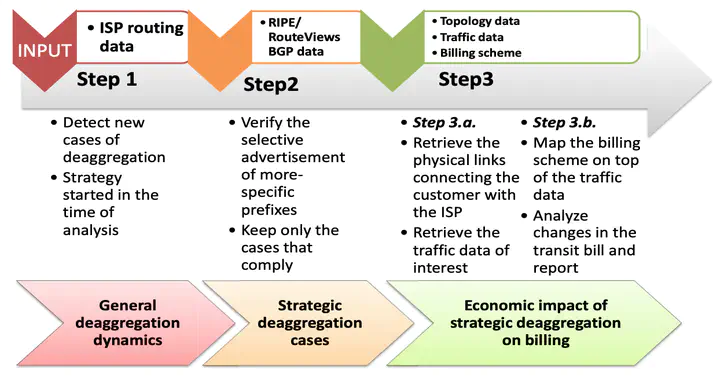
Abstract
Prefix deaggregation is recognized as a steady long-lived phenomenon at the interdomain level, despite its well-known negative effects for the community. The advertisement of more-specific prefixes provides network operators with a fine-grained method to control the interdomain ingress traffic. Moreover, customer networks combining this mechanism with selective advertisements may decrease their monthly transit traffic bill and potentially impact the business of their providers. In this paper, we develop a methodology for Internet Service Providers (ISPs) to monitor new occurrences of prefix deaggregation within their customer base. Moreover, the ISPs can detect on their own when deaggregation may decrease the transit bill of their customer networks. We first examine the ISP’s BGP routing data for new cases of prefix deaggregation generated by customers. Then, we check for selective advertisements of the newly generated prefixes using external routing data. We look beyond the incentives for deploying this type of strategy and instead we examine its economic impact. We exemplify the proposed methodology on a complete set of data including routing, traffic, topological and billing information provided by a major Japanese ISP and we discuss the implications of the obtained results.